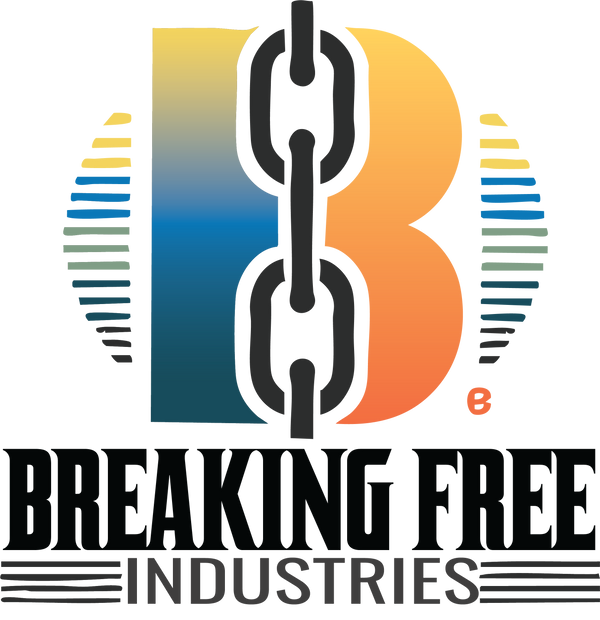
The Hole in Our Justice System: Why Solitary Confinement Makes No Sense
Share
Prison sentences in America aren’t driven by science—they’re driven by politics, public pressure, and headlines. We like to believe there’s rhyme and reason to sentencing, but there isn’t. There’s no formula proving that a certain number of years yields a better outcome. Sentences are administered by judges (lawyers), using guidelines developed by politicians (more lawyers), both of whom are (usually) elected - under the premise of keeping us “safe.” And that safety is achieved by putting away “bad” people for their crimes forgetting that 95% of them will at some point rejoin society.
Case in point: an 18-year-old’s brain isn’t even fully developed, yet we sentence them to 50 years. Neuroscience says that by 35, most would pose little or no threat to society. But we don’t release them. We keep them locked up because we want our pound of flesh. Meanwhile, we inventory humans, squeeze out prison labor, and then act surprised when the outcome on release is exactly what it was before—broken lives, broken families, broken communities.
And the disparities are absurd. A high-profile burglary in Los Angeles gets 37 years, while a low-profile murder might get 5. It’s not based on risk of reoffending—it’s courtroom roulette.
Hell in a Cell
If you really want to see the cruelty baked into the system, look at solitary confinement—“the hole,” “seg,” isolation, or as Antoine Rivers calls it in No Turning Back (2025, self-published), the devil’s studio apartment.
We pretend it’s reserved for the “worst of the worst,” but people end up there for everything from fighting to talking back to a guard, from having a candy bar to being “too vulnerable” for the yard. Sometimes, they’re sent there for no reason at all.
“You wake up inside a concrete shoebox. No windows. No sunlight. Just you, a metal toilet, and the creeping suspicion the walls are judging you. The silence gets so loud it feels like it’s yelling at you—until you start yelling back.” — Antoine Rivers, No Turning Back (2025)
Over 81,000 people in the U.S. are in solitary on any given day—6.3% of the prison population—plus another 42,000 in local and federal jails. That small group accounts for 50% of all prison suicides. That’s not coincidence. That’s cause and effect.
No Evidence. All Damage.
Study after study shows solitary doesn’t rehabilitate—it breaks people. It’s linked to depression, paranoia, hallucinations, self-harm, and increased violence after release. The United Nations calls it torture. Human rights groups call it torture. The U.S. prison system calls it “standard operating procedure.”
“This system doesn’t rehabilitate. It fractures. Then tosses you back into society like, ‘Alright, good luck out there. Hope that time alone made you a better person!’ Spoiler alert: it didn’t.” — Antoine Rivers, No Turning Back (2025)
And here’s the kicker: 95% of all incarcerated people will one day be free. The person you’re breaking in a cell today might be standing behind you in a grocery store tomorrow. If our goal is public safety, shouldn’t we be helping people reacclimate and reintegrate, not pushing them toward collapse?
A System Designed to Fail
Two-thirds of people released from prison are re-arrested within three years. Four out of five are back within five. Each re-incarceration costs taxpayers around $44,000 per year in federal facilities alone.
Solitary confinement isn’t justice. It’s not even discipline. As Rivers puts it, “It’s psychological demolition.” And the more we accept it as “normal,” the more we become complicit in the slow-motion wreckage of human lives.
If we’re serious about fixing this system, we have to stop treating people as disposable and start making rehabilitation the goal. Otherwise, we’ll keep paying—financially and morally—for a system that fails everyone.
Josh Nowack is a dad, a fair chance employer, and someone who believes deeply in second chances—because he’s lived one. He’s the co-founder of Breaking Free Industries, a custom apparel company in Orange County, California that hires those who’ve been told “no” too many times. Josh also serves as Chief Development Officer and lead instructor at Inmates to Entrepreneurs, where he’s proud to help others build the businesses that can change their lives. He sits on the boards of both Inmates to Entrepreneurs and Talents ASCEND, and hosts the podcast From Cell to CEO, where he shares real stories of resilience, grit, and growth.
He’s just trying to pay it forward—with purpose, not perfection.
More information about Antoine Rivers, his podcast and his book can be found on Instagram at https://www.instagram.com/theconvictionfictionpodcast/.
Related Strategy Reads
Explore adjacent strategy pages to strengthen your merch operating model.
